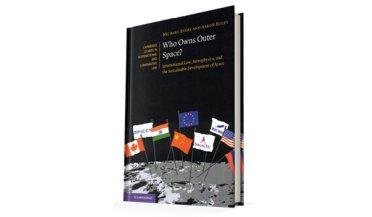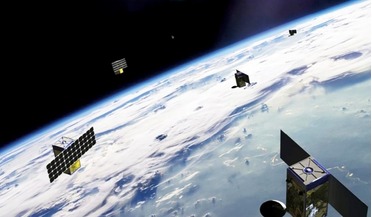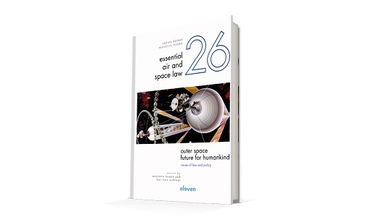 01 April 2025
Who Owns Outer Space?
01 April 2025
Who Owns Outer Space?
... ‘non-trivial’. For decades, the answer has been “no-one”, because the 1967 Outer Space Treaty prohibits national appropriation and declares space to be the “province of mankind”. But those words were written more than half a century...
 October 2018
Mining the Moon for fun and profit
October 2018
Mining the Moon for fun and profit
... are currently a topic of hot debate. The Outer Space Treaty (OST) is the only international agreement governing space activities that has been signed by the relevant space capable nations. It prohibits claims of national sovereignty over celestial...
 April 2019
The changing economics of space
April 2019
The changing economics of space
... clear, although the obligation on 104 signatory nations has been in place since the United Nations Outer Space Treaty of 1967. However, as long as there is any uncertainty over who created the debris there will be controversy over...
 30 May 2018
China opens up its space station to the world
30 May 2018
China opens up its space station to the world
... to China, but also to the world. Just as the Outer Space Treaty of 1967 proclaimed, the exploration and use of outer space shall be a common province for humankind. Outer space should become a new domain for promoting the common interests...
 20 May 2022
Outer Space - future for humankind issues of law and policy
20 May 2022
Outer Space - future for humankind issues of law and policy
...and development. A key aspect that comes to the fore in any contemporary writing on space law is the fact that existing space law – as enshrined in the 1967 Outer Space Treaty and its offshoots – is not directly applicable to many of today’s promised...
 August 2016
Commercial space development spurs trend for public-private collaboration
August 2016
Commercial space development spurs trend for public-private collaboration
... the need to identify and protect us from objects in space that could obliterate life on Earth. All of the aforementioned...framework The 1967 Outer Space Treaty (OST) provides the framework by which all nations utilise and operate in space. The OST is ...